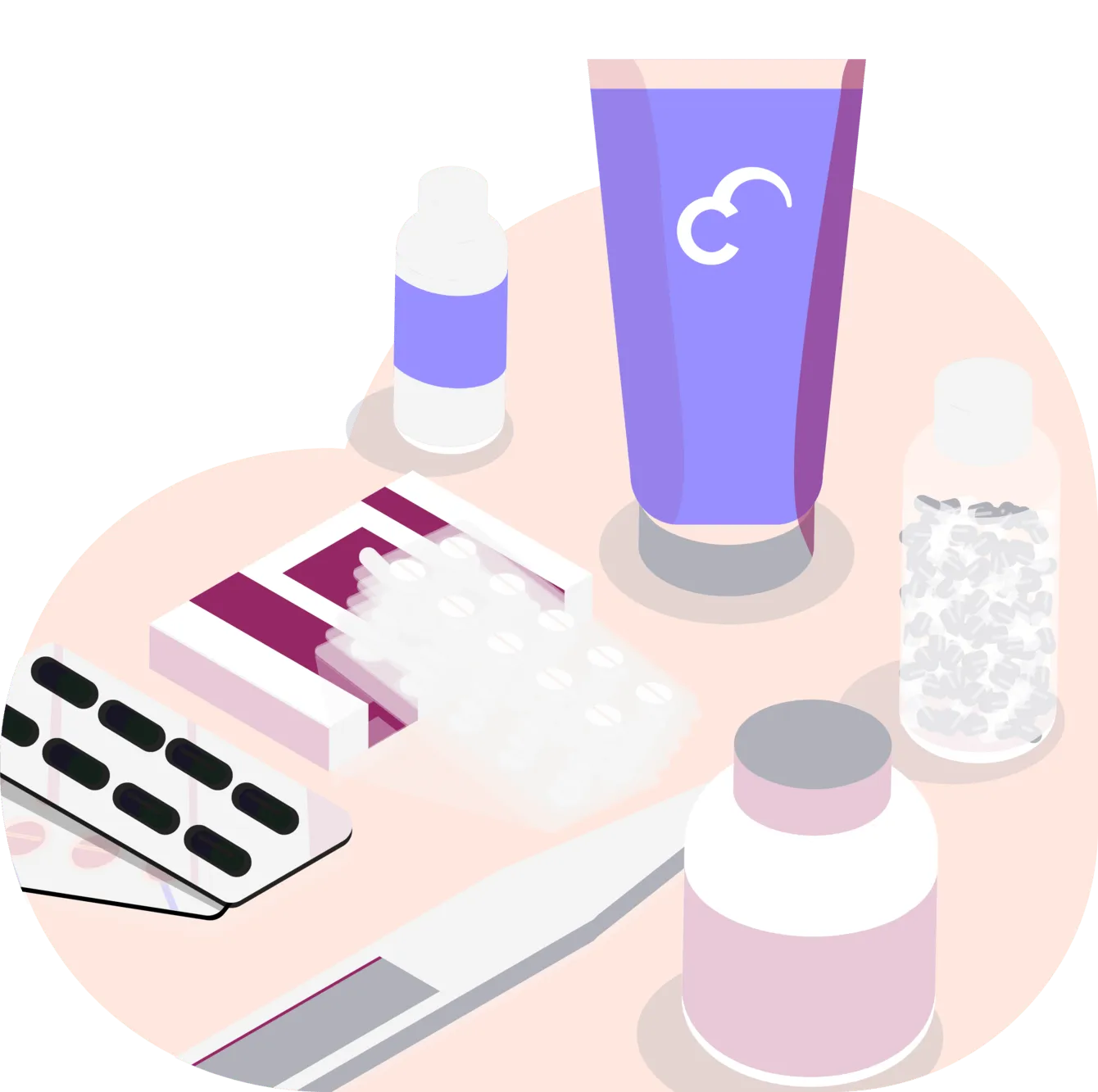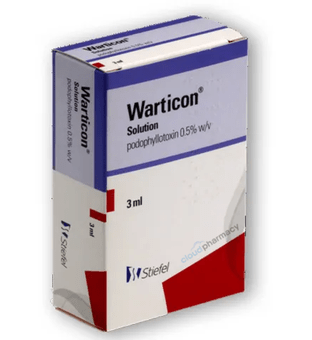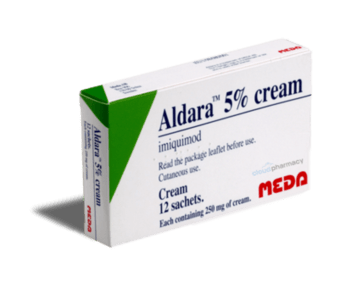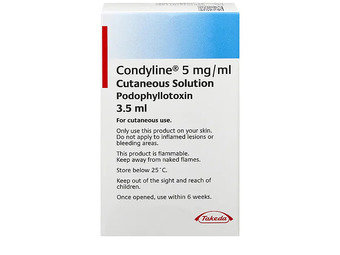Genital Warts Treatment

More information
Introduction
Genital Warts Treatment Online
Genital warts are among the most common STIs (sexually transmitted infections) in the UK. Often caused by Human papillomavirus (HPV), genital warts are not considered detrimental to your physical health.
HPV is the most common STI, with over 100 strains. Some strains can cause serious side effects, such as cancer, though these are widely vaccinated against. Other strains can cause issues like genital warts.
For some patients, genital warts may cause discomfort or embarrassment. Some may not even notice that they have genital warts, while others may see skin-toned bumps and other signs of infection.
Genital warts are more common in moist areas of the genitals. If you are dealing with genital warts, you’re not alone. Between 3% and 5% of sexually active adults have reported experiencing genital warts. As genital warts are often invisible, the true number may be even higher.
Treatments
More information
Once an online consultation has been been approved by our medical team, our pharmacy will safely prepare and ship your treatment to you in discreet packaging using Royal Mail or DPD.
What Are Genital Warts?
Genital warts are small bumps, growths or patches of skin that are caused by HPV. They can be found anywhere on the genital area as well as the anus and tops of the thighs. Genital warts may be uncomfortable, itchy or mildly painful, but they are rarely a cause for concern. Women are more likely to experience complications from genital warts, but these are still rare.
It is a good idea to check your genital area for changes regularly. This should be a visual check, using a mirror to help you see better if necessary.
How Do You Get Genital Warts?
Genital warts can be passed on by touching the affected area. You may be unable to see if there are genital warts present if, for instance, they are located inside the vaginal area.
You can get genital warts in the following ways:
- Sexual intercourse
- Sexual touching and skin to skin contact
- Sharing sex toys
In rare cases genital warts may be contracted through:
- Oral sex
- Childbirth from a mother to their child
Genital Warts Symptoms
The symptoms of genital warts differ between men and women. Many people infected with HPV will not exhibit the symptoms of genital warts, though they may still be able to pass the infection on. Some of the most common symptoms include:
- Fleshy bumps, either single instances or as groups
- Different sized bumps, from imperceptibly small to clearly visible
- A cauliflower-like appearance
- Itchiness or discomfort
- Inflammation
- Pain, though this is rare and usually minor
For women, genital warts are most often found in and around the following areas:
- Vulva
- Cervix
- Anus
- Tops of the thighs
For men, they are most commonly on the following:
- Penis
- Scrotum
- Inside the urethra
- Anus
- Upper thighs
Talk to your doctor or pharmacist if you think you have genital warts to get advice on treatment and next steps.
Genital Warts Diagnosis
Genital warts can often be diagnosed through a visual assessment by a doctor or nurse. They may use a magnifying lens to identify more minor cases of genital warts.
You may also be asked questions about your sexual history and any other symptoms you might be experiencing. It is essential, to be honest about your symptoms and sexual history. You should see a doctor if a past sexual partner has reported experiencing genital warts, even if you do not have symptoms yourself.
Your doctor may also need to do a cervical test to check for genital warts inside the vagina, urethra or anus and test for HPV and ensure that you are in good health. HPV can also cause some types of cancer, so doctors or nurses may do cervical screening to ensure you are not at risk.
How Long Do Genital Warts Last?
Every patient and case of genital warts is different. For some, genital warts will go away on their own, while others may require medical treatment. Genital warts can last anywhere from a few months to two years. For some, they may last even longer.
Treatment can help speed up the process and alleviate discomforting symptoms like itching and irritation. Patients with genital warts may experience multiple recurrences throughout their lives, so finding an effective genital wart treatment can be beneficial even if you aren’t currently experiencing symptoms or if they seem to have cleared up.
Are Genital Warts Contagious?
Both genital warts and HPV, which are the common cause of genital warts, are highly contagious. In addition, once you contract HPV, you are always infectious. So it is important to get yourself checked out if you suspect HPV or genital warts.
Even when your genital warts have cleared up, you could still be able to pass the infection on to others. It is crucial to practice safe sex when you have an active case of genital warts and seek your doctor’s advice about safely preventing the spread of HPV and genital warts.
Genital Warts in Pregnancy
In very rare cases, genital warts can be passed on from a mother to a baby during childbirth. If you are concerned that you have a case of genital warts while pregnant, you should talk to your doctor and get a diagnosis. They will be able to offer you the most appropriate genital wart treatment and help reduce the risk of passing on the condition to your baby.
In some cases, genital warts may make the chances of delivery more challenging. Your healthcare provider will be able to assess whether this is the case for you. If they think it might impact the safety of the birth, they may recommend treatments or caesarean delivery.
How to Prevent Genital Warts
Preventing genital warts can be challenging, as even sex with condoms cannot completely cover the potential spread. If your partner has genital warts, you should use a condom and be aware of the affected areas. The most effective form of protection is to abstain from sexual contact with an infected person, though this is not always practical.
You can also get a vaccine that protects against some strains of HPV. Though this will not offer total protection. Both men and women can get the HPV vaccine, and it is available for free from the NHS for qualifying patients up to the age of 25, as well as being offered as standard to boys and girls from the age of 12. You can also get the vaccine privately up to the age of 45. It is best to get the vaccine before you become sexually active to have the best chance of protection against HPV and genital warts.
For more information, please visit our sexual health page to learn more about contraception and staying safe.
Treatment for Genital Warts
There are two broad categories of genital wart treatment, topical and surgical. You will usually start with topical treatments, which can help manage discomfort and reduce the appearance of warts. Over-the-counter wart treatments are not suitable for use on genital warts, so your doctor will usually prescribe you treatment.
Surgical treatments include:
- Wart freezing
- Wart burning using electrical currents
- Surgical removal
- Injections
- Laser treatment
At Cloud Pharmacy, we offer effective genital warts treatment options such as Warticon and Aldara 5% cream. If you have any questions regarding treatment, our expert team here is on hand to answer your queries.
Guides
How it works
First...
Complete a quick eligibility check
Then...
Order your treatment
Finally.
Fast, confidential delivery to your door






















